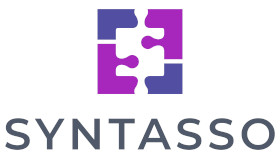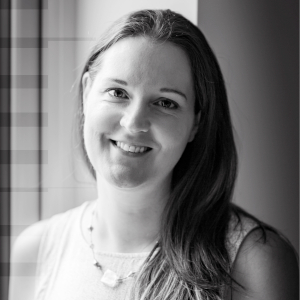Case study: Syntasso
State of Open: The UK in 2023
Phase Two “Show us the Money”
Part 1: “The Economics of Open Source Software”


Paula Kennedy, Founder & COO
Syntasso, founded in 2021 by industry veterans from CloudCredo, is a London-based startup offering the Open Source framework Kratix on Github. Their goal is to aid platform teams in constructing better platforms for application developers. Currently, all their software is free, but they plan a subscription-based enterprise version as they expand, tapping into both subscription and marketplace revenue streams. The marketplace includes “promises”, abstract capabilities available as a service. Syntasso operates with a flexible hybrid working model in London and emphasises the UK’s skilled tech sector. Looking ahead, they are active supporters of the Cloud Native Compute Foundation and envision donating Kratix to CNCF in the future, facilitating broader community contributions.
Founded in 2021 by a group of experienced and passionate industry experts with a breadth of Open Source knowledge, Syntasso is London based. Paula proudly explains, “A lot of the founding team at Syntasso were the same folks that founded CloudCredo in 2012. We’ve all been through the Pivotal journey and the VMware journey and have all happily hopped back into launching another startup.” The founding team left VMware in January 2021, self funded and founded Syntasso, with the combined goal of helping platform teams thrive and build platforms to better serve application developers. Syntasso’s current offering, Kratix, is an Open Source framework available on Github that makes it easy for platform teams to build better platforms.
Currently all their software is Open Source and free to use. But as they grow, they recognise that their go to market product will need to have subscription-based enterprise version, so they can leverage two streams of revenue, subscription and marketplace, where their software will provide integration to lots of other vendors’ software – “we’ve already got 25 to 30 ‘promises’ available, these are an abstraction offering capabilities as a service. These promises offer Open Source Software but in the future, we may offer paid for promises and so we’ll get revenue that way. The other way is through our customers and potentially charging customers an annual subscription for an enterprise version of the Open Source product or offering paid for support.”
Syntasso: Starting up Local
Syntasso operates a hybrid working model headquartered in London with their small yet strong team of eight people based in and around London. The Open Source model and offerings allows them to broaden their target market to anyone who “uses Kubernetes and has multiple application teams with a platform team that’s trying to serve them. So it’s potentially massive.” They are at the beginning of their journey and driven by Open Source products and able to experiment and not restrict themselves to one type of customer, a flexibility gained by the sheer nature of their Open Source solution.
With ample US experience (from their time at Pivotal and VMware), they are excited to be based in the UK with both its challenges and benefits. The UK is different to the US in that it is more risk-averse – but they are happy to be UK focused for two reasons:
1. Their investors are UK based and can leverage their multiple connections and networks; and
2. The level of skills available in the tech sector in the UK is invaluable.
Paula says, “The fund we’re hoping to go with for our seed is European based, and they have connections everywhere. In terms of hiring, I think we’re lucky because we’ve got this amazing network of people that we’ve worked with in the past. There’s a lot of talent available to hire, hiring is going to be relatively straightforward because we know some very good people. I’m not at all worried about any skills shortage in the UK, I think we’re going to be absolutely fine.”
Looking to the future: Syntasso is heavily involved in Open Source and they are strong supporters of the Cloud Native Compute Foundation (CNCF). Kratix itself is not yet in CNCF, as it is still growing and iterating on the code but they see themselves donating Kratix to the CNCF in the future, which is why it has been given a separate title.
This would allow them to “gather contributions from the community. “There are challenges around it, like herding cats and trying to get people aligned, but the community contributions and working with a huge diverse pool of people outweighs the complications of trying to get alignment. It’s worth it – dealing with that wider community to be able to come up with something that can serve people better.”
